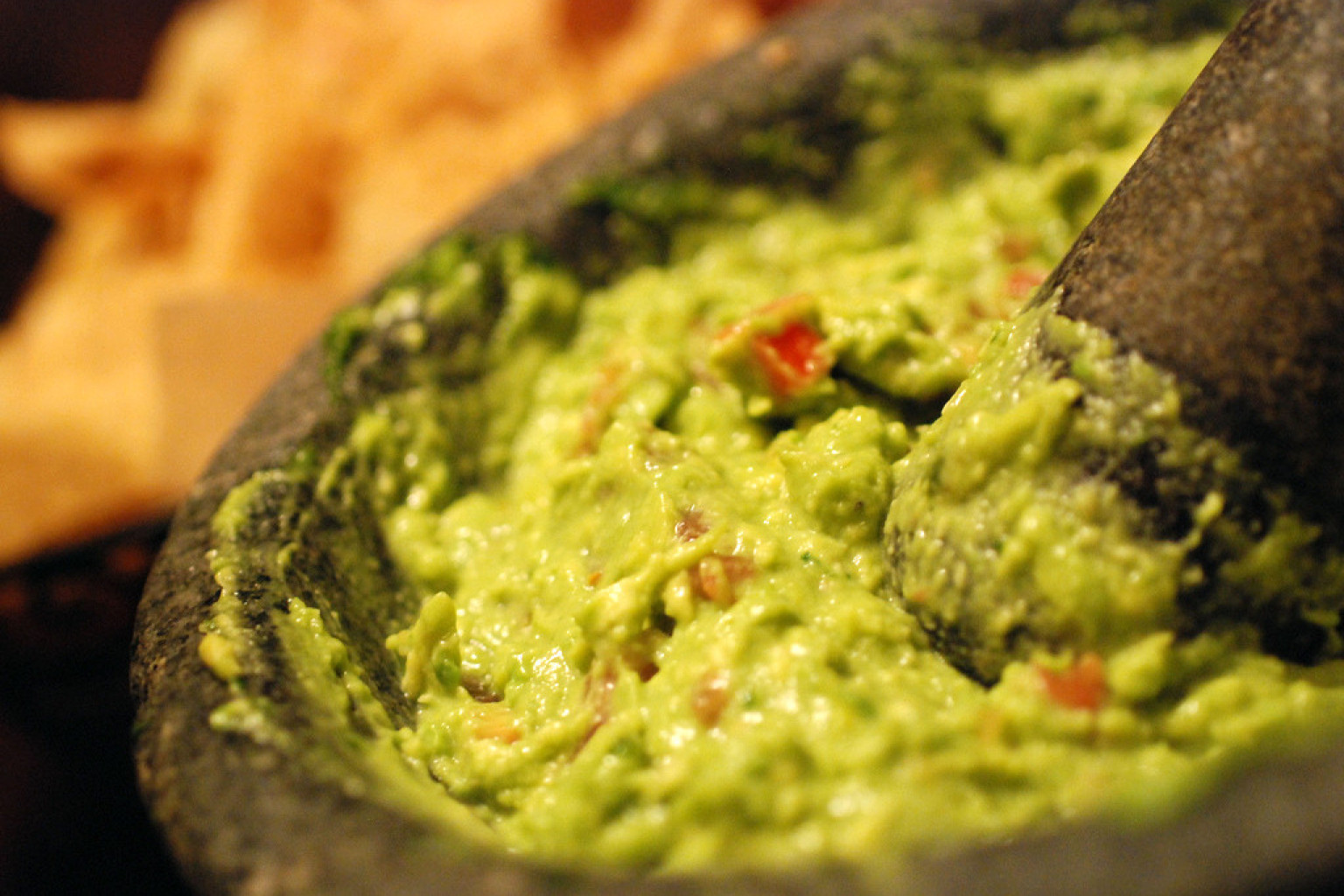Death in Season 3, Episodes 1-6
Jan 4, 2014 9:02:51 GMT -5
Douay-Rheims-Challoner, Dr Livingstone, and 1 more like this
Post by ThisIsNotAnInternetMeme on Jan 4, 2014 9:02:51 GMT -5
In keeping with board members' preferences, I chose to address one of the themes of Farscape. Since the AVC's coverage stopped at the end of the second season, I will start where they left off: in this case, with the season three and its main theme, as presented in its first six eps. So, with a hearty SPOILER WARNING for anyone who hasn't watched this far yet, yes, we're going to talk about Death.
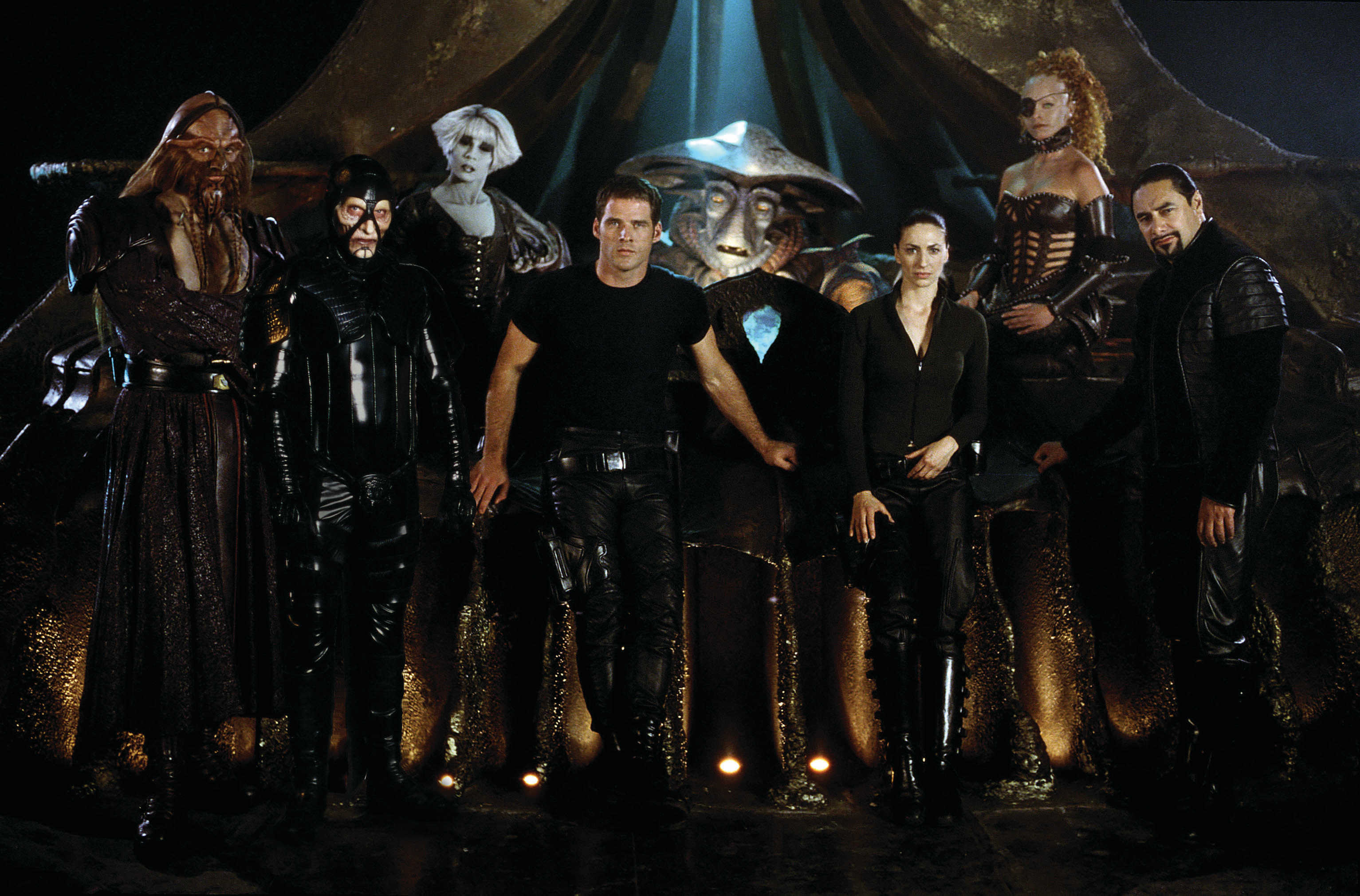
One of Farscape's more admirable traits was its affinity for change - both of itself, as a series, and its characters, as evolving people. For many fans, the biggest shift occurs somewhere in the back half of the initial season. There, the program offers up a string of episodes that are more tonally "serious" than what came before. Although the show always had people "on the edge," the character interactions and the story elements seem to be more mature than whatever had come before. And the actors' performances, as much as anything else, helped give Farscape a more distinct and intense vibe.
Before Season 1 closes, John Crichton has been subjected to extensive torture. Season 2, then, played into this, with a steady undercurrent of morbidity and instability throughout its run. The show actually jumped into out and out gore at times, physical and emotional stakes were constantly raised, and the last half found the genuine flashes of affection and levity underscored by an increasingly-foreboding atmosphere. So, it feels somewhat natural that the darkening progression continues, such that the third season opens with an ep titled, "Season of Death."

Of course, it is also equally-fitting that this title would prove an apt description for all of S3 itself.
If you need any proof, keep this in mind: season 3's first 6 episodes contain more death than the combined 44 eps that ran before it. Not only are there a greater number of existence-ending events, but they represent a veritable cornucopia of all the flavors of fatality.
Over 6 consecutive episodes, you see people kill or commit murder - sometimes in self-defense, and sometimes out of needless brutality. Major characters die, or are torn from their support systems, and we are made to feel the weight of it. For multiple eps, two characters are on the brink: Zhaan is perpetually deteriorating, with scant hope for recuperation, and a severely-wounded Moya is later slowly, methodically damaged on purpose (in order to save the ship's crew, how crazy is that).Whole populations expire in the first quarter of Farscape's aptly-named third season...
So what does this say about Farscape as a series?
It may be the most obvious point, but (for me) it highlights how the introduction of Scorpius changed everything. The man I once called "PK Pleather Dragon" arrived in the installment that reveals John's hidden knowledge. Thus, Scorpy is inextricably tied to the proceedings, since he ushered in what became the underlying plot for the rest of the show.
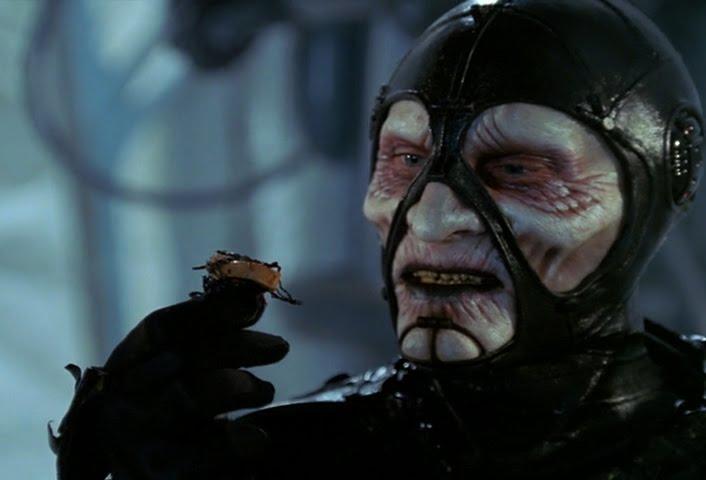
It's true that Farscape brought out some real monsters before the half-Scarren/Sebacean's arrival. In its "lighter days," the audience still saw endlessly-malevolent antagonists (Maldis), as well as coldly-horrifying ones (Namtar). But Scorpius is so mysterious, so hyper-capable, and so... simply repulsive, with his unearthly face and his BDSM-style outfit. It makes sense, then, that his ascension to being the series' major antagonist also heralds an overall turn to the macabre.
In the most casual possible terms: the villain looks like Dracula, and now Farscape, as a show, is becoming a horror/scifi series.
Yet, despite the addition of Wayne Pygram to the cast, head honchos David Kemper and Rockne S. O'Bannon have repeatedly stressed that the program was intended to have a seven-season run - one in which the third and fourth entries would contain the most darkness, death, and disaster, all before gradually "turning back to the light." To me, the clearest thing is that Season 3 very much jumps directly into a deep abyss.
The next question, then, is what to make of this change in tone, and how it is used.
For one thing, it seems to be more than a slight motif - death is not some frequent occurrence in Season Three, it's a theme. Hell, it's a flat-out recurring presence that merits a "special guest" credit.
As "Season of Death" opens, our cast is at its lowest possible point. Moya is hurt badly, Aeryn's gone, and John is... as ruined as possible. While I cannot question that all of those situations are repaired by the end of the hour, there is barely a happy moment amidst all the toil, hope, struggle, or loyalty.
How is that possible? Well, one guest (Grunshlik) lives out the worst end of an especially-sadistic horror film, with Scorpius playing the an incomparable demonic figure. Scorpy here is so mean that it's efficient, and he's always on the brink of getting exactly what he wants. We, as viewers, cringe at the things Scorpius does, and for good reason. By hour's end, the bad guy is gone and our heroes are physically back to where they were a few episodes.
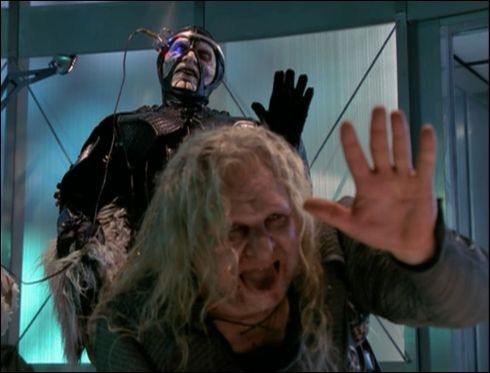
But, however positive the final tally may seem, we did still see a John Crichton who had been completely demolished. We heard someone claim to read his mind and say that he wanted to die. Moreover, we reeled at learning that John's cure came from the body parts of doomed people who had been frozen just before dying.
And, because this is Farscape, someone later revealed that the consciousness inside each preserved body was not "asleep" - no, they were trapped in ongoing agony. Proving that statement was not treated as an act of madness or anger, it was referred to as a kindness. This, if nothing else, should signify that we're clearly playing in the deep end of the pool.
These elements are all serious and thoughtful, and they're really, really not given to a happy-go-lucky or bombastically-victorious atmosphere. Keep in mind that while John is "restored" to what he once was, another person is brought back to life. Yet, before we can utter the words "net gain," we learn that this other revitalization will have a cost - the death of someone else who is dear to us.
In Farscape's 3rd premiere, then, from death comes life - which is a fine and good thing. However, it cannot be ignored that following upon that life is more death - more death than we could ever have feared.
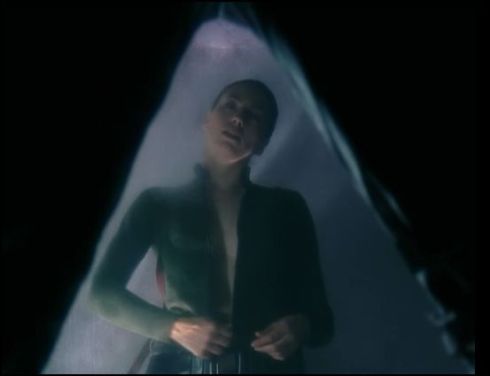
Take, for example, the next, most light-hearted of the first 6 eps - "Suns and Lovers." Along with some fine humor and a bit of romantic development between John and Aeryn, the violence in "SaL" is not as graphic or horrific as in the episodes after it. We don't lose a major character and, by the end, "Suns" only features two cases of on-screen expiration.
The study in contrasts, though, is profound. That last death is surely quick and (for the Moya crew) triumphant. But the first is slow and drawn out and really quite sad. A poor bartender is pinned by debris - slowly expiring, yet still trying to help save children as he bleeds out. And this on-screen misfortune is nothing compared to the hundreds of people who died off-screen, after the credits rolled.
Similarly, "Suns and Lovers" not only features the equivalent of a space mall being wiped out, it highlights two other tragic endings. D'Argo's romantic relationship with Chiana closes with the most painful and hurtful betrayal possible for a pair of lovers. Also, the same act makes it so D'Argo's relationship with his newly-found son is also strangled to death, right in its crib.
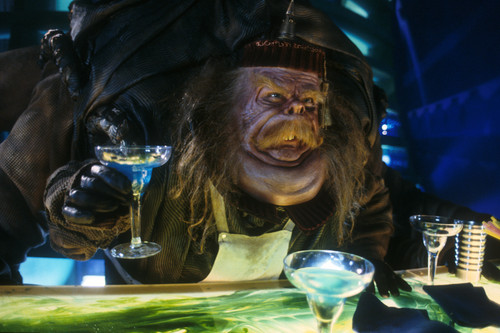
The result is that our favorite Luxan has no innocent or hopeful tie to his past, nor future potential for all the long-term personal connections that he had or may have had. In one stroke, Farscape's third most prominent player has lost everything that mattered most to him. If that's not considered a form of death, it should be. Especially since D'Argo has spiritually lost what was torn from John, physically.
The show's next entries, called "Coulda, Would, Shoulda," are a two-parter. There, the third and fourth eps of the season carry on with showing more pain, and one very important (and literal) death for a major character. In addition, we get a crew of aliens who all die for noble, if misguided purposes. We also see the introduction of the newest Moya crewmember, Jool.
Over the course of these 2 eps, Jool wakes up from cryogenic suspension - and is immediately informed that her companions, both her cousins, died to save John Crichton's life. Aside from her own personal tragedy ("nothing's worse than losing family," said a reformed pirate in S1), it's telling that her immediate reaction is to try to kill John out of revenge. And it's hard not to bear in mind that "Suns and Lovers" had just featured a family being broken - and that the literal death I alluded to in C,W,S also represents the loss of the main parental-figure in Moya's "family."
Episode 5 portrays peaceful accords disrupted and entire planets being razed - that ep stands out most of all because it is a time travel snafu that is not properly cured. Some sort of balance is restored by the actions of our heroes, and yet it comes at great cost: the crew of Moya has to live with the knowledge that they made the past terrifying and painful for a whole group of people who were supposed to live much longer. This impact is made all the worse because one victim is a little girl that D'Argo befriended.
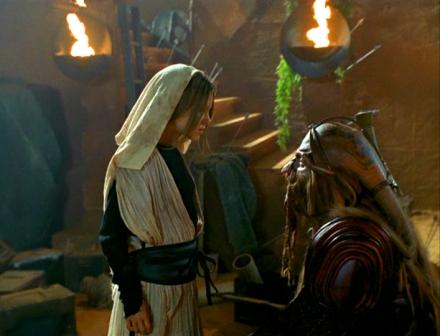
At this point, one might expect a respite in 3x06, "Eat Me." But that respite never comes. This latest entry flirts with a genre (horror) that the series has never tried before, giving a focus to a small set of actors wherein everyone comes out "okay" in the end.
And yet "Eat Me" is even worse. It's a genuine horror episode - the car breaks down in front of the worst possible location - and Farscape somehow managed to completely nail the material. Aside from a constant sense of dread and potential catastrophe, we see several people die - including characters that we know and love. No one dies nobly, nor do they fulfill some life goal in so doing. Here, if nowhere else, we learn that our heroes can get killed, and that they may die quite badly.
The newest member, Jool, is pretty emblematic of it all. Over the course of "EM," she is driven by fear to a despair so deep that she attempts suicide. The act fails, and it is played for a joke, with her being reminded by Chiana that she can't give up. But even if we aren't familiar with the new cast member, or her fortitude, it reflects how badly things turn for the people that we do know.
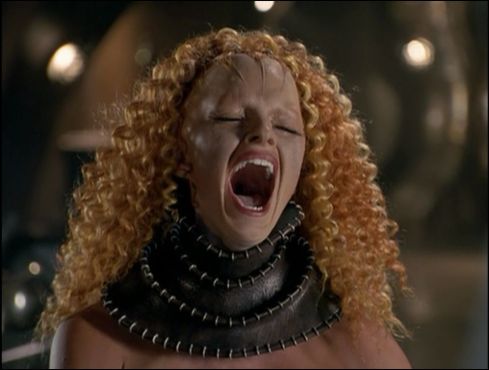
At various points, Chiana and D'Argo see "themselves" die. Although we make it to the end with both persons present, Chiana's reaction in the moment gives us the idea that she doesn't know which one of her apparent "copies" is, in fact, her. We later see her fight with the ferocity reserved for a last-ditch do-or-die struggle. No surprise on that score: one of her big feats is to burn "D'Argo's" corpse before countless savage creatures can eat it.
And, speaking of the Luxan warrior, his final act in the episode is to wonder, with a strong sense of trepidation, whether "he" died or whether his "duplicate" did. Hardly an upbeat denouement, right?
Or consider John. Aeryn, in a rare moment of emotion, once extolled Crichton for the fact that he never gives up, never stops "trying." Well, just before he escapes, John embraces the mentality of a doomed ship's captain. He's "seen" two of his best friends die, so even his final attempt to survive has "or we'll all die" as the only alternative result. John's not, as he has been before, accepting of a high risk of failure - he's fine with it.

"If this fails, death please." That's not what you want to have to put on your rear bumper.
So, we're six episodes in, and what have we experienced, as viewers?: Our loved one died, we almost lost the ship, we saw the destruction of a family and a major player's past, and our heroes inadvertently caused the slaughter of women and children. And this time out, "EM" takes all of the horror that was present in the season premiere and amplifies it.
Yet still it keeps not getting better. "Eat Me" has shown us so many awful sights, which I've lightly described. And I haven't mentioned the two characters - ones who are the worst case scenario for our beloved Pilot and Moya - seen by us to actively wish for death, having gone insane from perpetual torment. It is surely, a Season of Death, and it feels like every episode could be visually summarized by a jet-black silhouette that carefully extinguishes a candle. Or three. Or thousands.
When you take all of these things together, you get a terrifying, latter-Buffy-esque view of Farscape's mentality for episodes 45-66. The opening salvo of eps establish clearly that our cast is being put through the wringer. The setting is "maximum torment." This is like the scene in The Princess Bride when Wesley scoffs at fighting to the death, instead offering to fight "to The Pain." Only our protagonists get plenty of both.
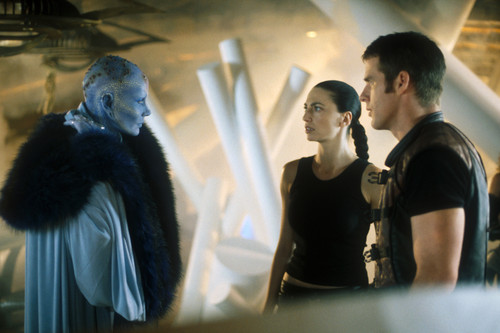
To summarize, throughout this early run, we have: a person's body restored and a friend revived, both at terrible cost, with the latter being a more personal loss; a space mall in which virtually everyone except the crew dies; investigating a wormhole leads to a major cast member's death and Moya herself being brutalized; a visit to a peaceful shrine-planet, where the crew accidentally makes the past progressively worse, and they can never undo the tragedy they caused; and, finally, half of the cast is put through nothing short of a physical and psychological hell.
More than simply being about "death," this early part of the third season seems to set up a situation where all of the cast members are, in essence, toxic. If Moya's crew themselves do not damage the things around them, then the things around them damage the crew. This series never had a reset button on what happened to its players, but season three increased the cruelties heaped upon them, manyfold. It's amazing that the final ep of this season didn't end with Rygel's permanent paralysis, or D'Argo becoming a triple amputee.

One of Farscape's more admirable traits was its affinity for change - both of itself, as a series, and its characters, as evolving people. For many fans, the biggest shift occurs somewhere in the back half of the initial season. There, the program offers up a string of episodes that are more tonally "serious" than what came before. Although the show always had people "on the edge," the character interactions and the story elements seem to be more mature than whatever had come before. And the actors' performances, as much as anything else, helped give Farscape a more distinct and intense vibe.
Before Season 1 closes, John Crichton has been subjected to extensive torture. Season 2, then, played into this, with a steady undercurrent of morbidity and instability throughout its run. The show actually jumped into out and out gore at times, physical and emotional stakes were constantly raised, and the last half found the genuine flashes of affection and levity underscored by an increasingly-foreboding atmosphere. So, it feels somewhat natural that the darkening progression continues, such that the third season opens with an ep titled, "Season of Death."

Of course, it is also equally-fitting that this title would prove an apt description for all of S3 itself.
If you need any proof, keep this in mind: season 3's first 6 episodes contain more death than the combined 44 eps that ran before it. Not only are there a greater number of existence-ending events, but they represent a veritable cornucopia of all the flavors of fatality.
Over 6 consecutive episodes, you see people kill or commit murder - sometimes in self-defense, and sometimes out of needless brutality. Major characters die, or are torn from their support systems, and we are made to feel the weight of it. For multiple eps, two characters are on the brink: Zhaan is perpetually deteriorating, with scant hope for recuperation, and a severely-wounded Moya is later slowly, methodically damaged on purpose (in order to save the ship's crew, how crazy is that).Whole populations expire in the first quarter of Farscape's aptly-named third season...
So what does this say about Farscape as a series?
It may be the most obvious point, but (for me) it highlights how the introduction of Scorpius changed everything. The man I once called "PK Pleather Dragon" arrived in the installment that reveals John's hidden knowledge. Thus, Scorpy is inextricably tied to the proceedings, since he ushered in what became the underlying plot for the rest of the show.

It's true that Farscape brought out some real monsters before the half-Scarren/Sebacean's arrival. In its "lighter days," the audience still saw endlessly-malevolent antagonists (Maldis), as well as coldly-horrifying ones (Namtar). But Scorpius is so mysterious, so hyper-capable, and so... simply repulsive, with his unearthly face and his BDSM-style outfit. It makes sense, then, that his ascension to being the series' major antagonist also heralds an overall turn to the macabre.
In the most casual possible terms: the villain looks like Dracula, and now Farscape, as a show, is becoming a horror/scifi series.
Yet, despite the addition of Wayne Pygram to the cast, head honchos David Kemper and Rockne S. O'Bannon have repeatedly stressed that the program was intended to have a seven-season run - one in which the third and fourth entries would contain the most darkness, death, and disaster, all before gradually "turning back to the light." To me, the clearest thing is that Season 3 very much jumps directly into a deep abyss.
The next question, then, is what to make of this change in tone, and how it is used.
For one thing, it seems to be more than a slight motif - death is not some frequent occurrence in Season Three, it's a theme. Hell, it's a flat-out recurring presence that merits a "special guest" credit.
As "Season of Death" opens, our cast is at its lowest possible point. Moya is hurt badly, Aeryn's gone, and John is... as ruined as possible. While I cannot question that all of those situations are repaired by the end of the hour, there is barely a happy moment amidst all the toil, hope, struggle, or loyalty.
How is that possible? Well, one guest (Grunshlik) lives out the worst end of an especially-sadistic horror film, with Scorpius playing the an incomparable demonic figure. Scorpy here is so mean that it's efficient, and he's always on the brink of getting exactly what he wants. We, as viewers, cringe at the things Scorpius does, and for good reason. By hour's end, the bad guy is gone and our heroes are physically back to where they were a few episodes.

But, however positive the final tally may seem, we did still see a John Crichton who had been completely demolished. We heard someone claim to read his mind and say that he wanted to die. Moreover, we reeled at learning that John's cure came from the body parts of doomed people who had been frozen just before dying.
And, because this is Farscape, someone later revealed that the consciousness inside each preserved body was not "asleep" - no, they were trapped in ongoing agony. Proving that statement was not treated as an act of madness or anger, it was referred to as a kindness. This, if nothing else, should signify that we're clearly playing in the deep end of the pool.
These elements are all serious and thoughtful, and they're really, really not given to a happy-go-lucky or bombastically-victorious atmosphere. Keep in mind that while John is "restored" to what he once was, another person is brought back to life. Yet, before we can utter the words "net gain," we learn that this other revitalization will have a cost - the death of someone else who is dear to us.
In Farscape's 3rd premiere, then, from death comes life - which is a fine and good thing. However, it cannot be ignored that following upon that life is more death - more death than we could ever have feared.

The study in contrasts, though, is profound. That last death is surely quick and (for the Moya crew) triumphant. But the first is slow and drawn out and really quite sad. A poor bartender is pinned by debris - slowly expiring, yet still trying to help save children as he bleeds out. And this on-screen misfortune is nothing compared to the hundreds of people who died off-screen, after the credits rolled.
Similarly, "Suns and Lovers" not only features the equivalent of a space mall being wiped out, it highlights two other tragic endings. D'Argo's romantic relationship with Chiana closes with the most painful and hurtful betrayal possible for a pair of lovers. Also, the same act makes it so D'Argo's relationship with his newly-found son is also strangled to death, right in its crib.

The result is that our favorite Luxan has no innocent or hopeful tie to his past, nor future potential for all the long-term personal connections that he had or may have had. In one stroke, Farscape's third most prominent player has lost everything that mattered most to him. If that's not considered a form of death, it should be. Especially since D'Argo has spiritually lost what was torn from John, physically.
The show's next entries, called "Coulda, Would, Shoulda," are a two-parter. There, the third and fourth eps of the season carry on with showing more pain, and one very important (and literal) death for a major character. In addition, we get a crew of aliens who all die for noble, if misguided purposes. We also see the introduction of the newest Moya crewmember, Jool.
Over the course of these 2 eps, Jool wakes up from cryogenic suspension - and is immediately informed that her companions, both her cousins, died to save John Crichton's life. Aside from her own personal tragedy ("nothing's worse than losing family," said a reformed pirate in S1), it's telling that her immediate reaction is to try to kill John out of revenge. And it's hard not to bear in mind that "Suns and Lovers" had just featured a family being broken - and that the literal death I alluded to in C,W,S also represents the loss of the main parental-figure in Moya's "family."
Episode 5 portrays peaceful accords disrupted and entire planets being razed - that ep stands out most of all because it is a time travel snafu that is not properly cured. Some sort of balance is restored by the actions of our heroes, and yet it comes at great cost: the crew of Moya has to live with the knowledge that they made the past terrifying and painful for a whole group of people who were supposed to live much longer. This impact is made all the worse because one victim is a little girl that D'Argo befriended.

At this point, one might expect a respite in 3x06, "Eat Me." But that respite never comes. This latest entry flirts with a genre (horror) that the series has never tried before, giving a focus to a small set of actors wherein everyone comes out "okay" in the end.
And yet "Eat Me" is even worse. It's a genuine horror episode - the car breaks down in front of the worst possible location - and Farscape somehow managed to completely nail the material. Aside from a constant sense of dread and potential catastrophe, we see several people die - including characters that we know and love. No one dies nobly, nor do they fulfill some life goal in so doing. Here, if nowhere else, we learn that our heroes can get killed, and that they may die quite badly.
The newest member, Jool, is pretty emblematic of it all. Over the course of "EM," she is driven by fear to a despair so deep that she attempts suicide. The act fails, and it is played for a joke, with her being reminded by Chiana that she can't give up. But even if we aren't familiar with the new cast member, or her fortitude, it reflects how badly things turn for the people that we do know.

At various points, Chiana and D'Argo see "themselves" die. Although we make it to the end with both persons present, Chiana's reaction in the moment gives us the idea that she doesn't know which one of her apparent "copies" is, in fact, her. We later see her fight with the ferocity reserved for a last-ditch do-or-die struggle. No surprise on that score: one of her big feats is to burn "D'Argo's" corpse before countless savage creatures can eat it.
And, speaking of the Luxan warrior, his final act in the episode is to wonder, with a strong sense of trepidation, whether "he" died or whether his "duplicate" did. Hardly an upbeat denouement, right?
Or consider John. Aeryn, in a rare moment of emotion, once extolled Crichton for the fact that he never gives up, never stops "trying." Well, just before he escapes, John embraces the mentality of a doomed ship's captain. He's "seen" two of his best friends die, so even his final attempt to survive has "or we'll all die" as the only alternative result. John's not, as he has been before, accepting of a high risk of failure - he's fine with it.

"If this fails, death please." That's not what you want to have to put on your rear bumper.
So, we're six episodes in, and what have we experienced, as viewers?: Our loved one died, we almost lost the ship, we saw the destruction of a family and a major player's past, and our heroes inadvertently caused the slaughter of women and children. And this time out, "EM" takes all of the horror that was present in the season premiere and amplifies it.
Yet still it keeps not getting better. "Eat Me" has shown us so many awful sights, which I've lightly described. And I haven't mentioned the two characters - ones who are the worst case scenario for our beloved Pilot and Moya - seen by us to actively wish for death, having gone insane from perpetual torment. It is surely, a Season of Death, and it feels like every episode could be visually summarized by a jet-black silhouette that carefully extinguishes a candle. Or three. Or thousands.
When you take all of these things together, you get a terrifying, latter-Buffy-esque view of Farscape's mentality for episodes 45-66. The opening salvo of eps establish clearly that our cast is being put through the wringer. The setting is "maximum torment." This is like the scene in The Princess Bride when Wesley scoffs at fighting to the death, instead offering to fight "to The Pain." Only our protagonists get plenty of both.

To summarize, throughout this early run, we have: a person's body restored and a friend revived, both at terrible cost, with the latter being a more personal loss; a space mall in which virtually everyone except the crew dies; investigating a wormhole leads to a major cast member's death and Moya herself being brutalized; a visit to a peaceful shrine-planet, where the crew accidentally makes the past progressively worse, and they can never undo the tragedy they caused; and, finally, half of the cast is put through nothing short of a physical and psychological hell.
More than simply being about "death," this early part of the third season seems to set up a situation where all of the cast members are, in essence, toxic. If Moya's crew themselves do not damage the things around them, then the things around them damage the crew. This series never had a reset button on what happened to its players, but season three increased the cruelties heaped upon them, manyfold. It's amazing that the final ep of this season didn't end with Rygel's permanent paralysis, or D'Argo becoming a triple amputee.



